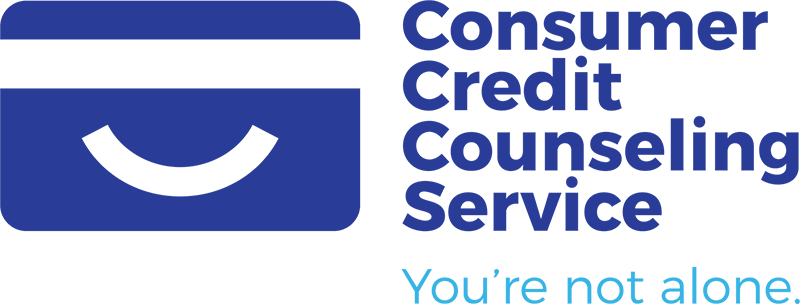Consumer Credit Counseling Service News Articles
Home » News Articles »
The pandemic has caused us all to take a second look at our spending habits. And it’s more important than ever to recognize where you can cut back and save.
An easy place to start is looking at your spending habits and recognizing when it is that you spend when you don’t need to spend. This money could be added to your emergency fund or saved for holiday shopping, which often seems to come as a surprise each year.
Now is a good opportunity to zero in on where your money goes and break the habit of spending on things you don’t need.
Below are seven (and unexpected) ways people waste money and how to avoid these costly mistakes.
- Stop paying for insurance that you don’t need
This one goes overlooked. Many times, people believe that the more insurance, the better. Certain forms of insurance are just not necessary for most people.
Insurance products that may be a waste of money are:
- Identity Theft Insurance – if your credit card comes with built-in protections from fraud, then you may not need additional.
- Children’s Life Insurance – usually children don’t have assets to protect which is truly the purpose of life insurance. Most child life insurance policies have a savings component called “cash value” that can be used to pay for college or a down payment on a house, but the fees outweigh the rate of return and so it is usually better to invest your money elsewhere. Open a 529 savings account or make sure you have an emergency fund to cover your child’s costs.
- Rental Car Insurance – if your typical car insurance has coverage that extends to a rental car, then you are paying extra for nothing.
- Collision Insurance – if your car is older and not worth much, you no longer need collision. Depending on your deducible and damage, it might not make sense to have collision coverage on your insurance policy.
- Travel Insurance – if you book your travel on a credit card that already provides travel insurance, then again, you are essentially paying extra for nothing. Many travel credit cards cover trip cancellation and lost luggage., so contact your card issuer to determine if this is the case.
- Don’t refinance TOO often
With interest rates slashed right now, it is a great time to refinance your mortgage for a lower rate. A better interest rate on your mortgage can save you money in the long run.
But avoid doing it too often, as it can come with a lot of loan fees that may negate your savings you would get with a lower interest rate.
If you have good credit, can afford your monthly payments, and have equity in your home, refinancing makes sense. Just remember to factor in the costs that are associated with the refinancing, then see how long it would take to make up for the cost of the fees.
It could take 3 – 5 years to break even, so it definitely wouldn’t make sense to refinance again before that point. If you’re planning on moving before you would break even, that would likely not be worth it either.
To calculate the break-even point, follow a few simple steps:
- Calculate what your monthly savings would be with the new loan by inputting the details (current loan amount, current interest rate, remaining term, new interest rate, new term) into a mortgage calculator online.
- Calculate what you would pay in total for refinance fees. Review the loan estimate your lender provides you and ask about any additional costs to expect.
- Divide the total loan costs by what your monthly savings would be. For example, if refinance fees cost $3500 in total and refinancing will save you $100 each month, it would take 35 months (or almost 3 years) to recoup the cost of refinancing.
- Stop making minimum credit card payments when you can afford more
If you can afford to make larger payments toward your credit card bills – or even pay your balances off in full (IDEAL) – you should. By making only minimum payments and carrying a balance month to month, you end up paying a high rate of interest, and your credit card balances quickly balloon.
High-interest debt quickly compounds and can get out of control easily.
If you have other debt in addition to credit card debt, prioritize the one with the highest interest rate. If that interest rate is in the double digits, it might be a good idea to pay more than the minimum to eliminate overall debt more quickly.
If you can’t afford to pay more than the minimum, make sure you’re at least paying what you can on time when the bill is due.
- Avoid giving too much power to emotional spending
Emotional spending happens on occasion, especially during times when we are seeking comfort. But making a habit of it can be disastrous to your financial situation.
There are going to be times when you want to treat yourself and buy something new – that’s human nature. But since emotions change all the time, you shouldn’t hand over the wheel or let them pull you in too many directions. That’s a surefire way to drain your resources.
If emotional spending puts you into debt or throws your budget off, that’s not okay.
Instead of yielding to every emotional impulse, try to spend on small things or something specific that you’ve budgeted for ahead of time. Always check the return policy, especially if you love to shop final sales.
And if you’re celebrating a win, such as a promotion or a big achievement, try to imagine how you’ll feel in a few days before splurging on a fancy dinner. If it still feels OK and there’s room in the budget, go for it. But if something feels “off”, listen.
To help reduce the temptation to spend, remove shopping apps from your phone and unsubscribe from retailer emails. Before you make a purchase, try writing it down first, along with the price. Wait 48 hours before you buy it, so you can make sure it’s within your budget and really makes sense for your lifestyle.
If you forget about it two days later, chances are you don’t really need the item, but simply needed a way to soothe yourself that day.
- Don’t pay for unused subscriptions and memberships
Free trials can be a good way to check out a new product or service without having to fully commit upfront. But just as easy to sign up for, a free trial is easy to forget, especially if you use a new service only for the first few months. Check out apps like Truebill, which can help you identify subscriptions you’re paying for but not using.
As many Americans adjust to work-from-home lifestyles, now is an opportune time to reevaluate your lifestyle and spending habits. Prioritize the subscriptions or memberships you use regularly. Ask yourself in what ways make them worth the money. Even ones you use regularly may not be worth the money.
And if you do sign up for a free membership or subscription, set a reminder on your phone to cancel before the intro period is over.
- Stop paying for convenience
Planning ahead can help save money on all kinds of things! For example, you’ll pay a lot more for snacks at the gas station than if you just bring treats from home.
There are ways to plan ahead so you don’t end up paying for the “convenience factor” while traveling.
- Look up gas prices online to find the cheapest prices. Just don’t drive too far off your route to get the cheaper prices and waste fuel in the process.
- Pay for checked bags in advance. Paying to check bags after booking the flight can be significantly more expensive.
- Book any service or travel plans directly through the provider, rather than through a third party. Third parties may allow you to compare rates easily but may charge other fees during the booking process.
- Avoid “keeping up with the Joneses”
“Keeping up with the Joneses”, or living beyond your means as a way to gain status, is an incredibly common way people waste their money. It’s easy to feel the pressure.
This “lifestyle creep” and comparing oneself to another happens all the time and is a big reason why people get into debt.
While it’s hard to avoid comparing your life to others in a world abundant with social media, try to be true to yourself, your lifestyle, and your budget. No two financial goals are the same because the road to reach that goal is likely very different.
Everyone comes from different paths, but what it takes for your neighbor to reach a certain financial milestone is likely different from what it takes you, and vice versa. Keeping your sights set on your own personal goals, needs and priorities is a much better way to save money – and maybe even lead a happier life.
Excerpted from Leslie Tayne


